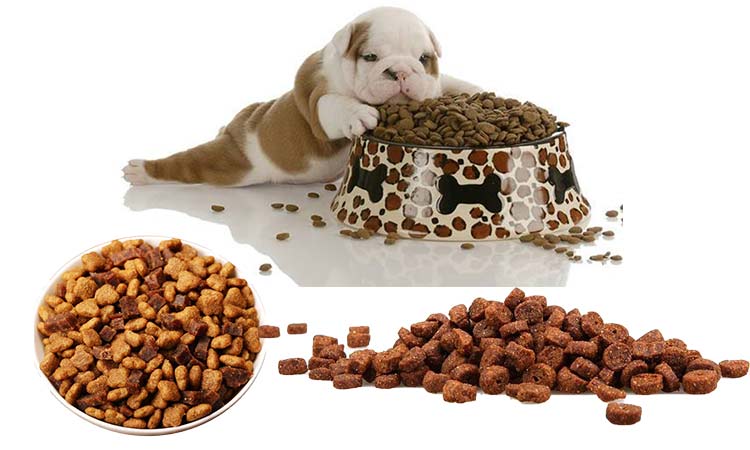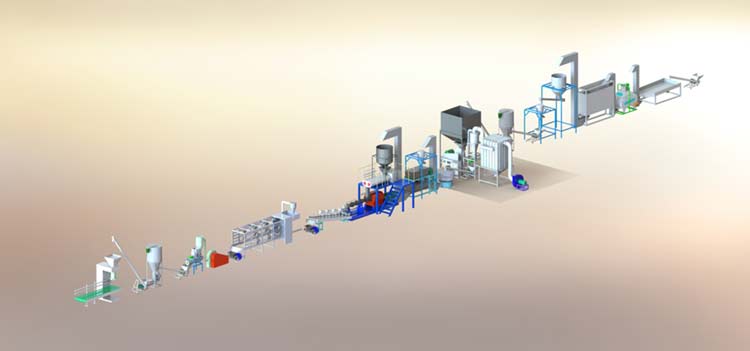1. Carbohydrates
Carbohydrates are the main source of energy that pets need. In order to ensure the survival, health, development, reproduction, heart beating, blood circulation, gastrointestinal motility, muscle contraction and other activities of their own physique, pets need a lot of energy, and 80% of these energy needs are provided by carbohydrates of. Carbohydrates include sugar and fiber.
Adult dogs need 10 grams of carbohydrates per kilogram of body weight per day, and puppies need about 15.8 grams per kilogram of body weight.

2. protein
Protein is an important source of body tissues and somatic cells in pets. Protein plays a variety of functions such as conduction, transportation, support, protection, and movement. Protein also plays a role in catalysis, regulation and maintenance of life activities in pet life and physiological metabolic activities.
As carnivores, pet dogs have different digestibility of protein in different feed materials. The digestibility of most animal offal and fresh meat is 90-95%, while the protein in plant-based feeds such as soybeans can only be digested 60-80%. If the dog food contains too much indigestible vegetable protein, it will cause abdominal pain and even diarrhea; moreover, too much protein needs to be degraded by the liver and excreted by the kidneys, which will increase the burden on the liver and kidneys. The general adult dog protein requirement is 4-8 grams per kilogram of body weight per day, and the growing dog is 9.6 grams.

3. Fat
Fat is an important component of pet's body tissue, and it is involved in almost all cell formation and repair. Fat is contained in pet's skin, bones, muscles, nerves, blood, and internal organs. The proportion of body fat in pet dogs is as high as 10-20% of their body weight;
Fat is the most important source of energy. Lack of fat can cause itchy skin, increased dandruff, rough and dry fur and ear infections, making domestic dogs dull and nervous; moderate intake of fat can stimulate appetite, make food more palatable to them, and promote fat-soluble vitamins A, D, E, K absorption. The digestibility of fat in pet dogs is almost 100%. The fat requirement is 1.2 grams per kilogram of body weight per day for adult dogs and 2.2 grams for growing dogs.
4. Minerals
Minerals are another type of essential nutrients for pet dogs, including elements needed by the human body, such as calcium, phosphorus, zinc, copper, magnesium, potassium, iron, etc. Minerals are important raw materials that make up the collective tissue of pet dogs, helping to regulate the acid-base balance, muscle contraction, and nerve responses in the body.
Dogs are most likely to be deficient in calcium and phosphorus. Deficiency can lead to many bone diseases such as rickets, rickets (in puppies), osteoporosis (in adults), paralysis in postpartum bitches, etc. An imbalance in the calcium to phosphorus ratio can also lead to leg problems (limping, etc.).
5. Vitamins
Vitamins are low-molecular-weight organic compounds that are necessary for pets' physical metabolism and require very little. They generally cannot be synthesized in the body and are mainly provided by pet food and dog food. Except for a few individual vitamins, most of them are required in dogs. Added to food. They do not provide energy, nor are they the structural components of the body, but they are absolutely indispensable in the diet. If a certain vitamin is lacking or insufficient for a long time, it can cause metabolic disorders and pathological states to form vitamin deficiencies.
Fat-soluble vitamins: Vitamins A, D, E, K, B vitamins (B1, B2, B6, B12, niacin, pantothenic acid, folic acid, biotin, choline) and vitamin C.
Don't worry about excess B vitamins (excess B vitamins are excreted). Because domestic dogs do not eat a lot of fruits, vegetables and grains like humans, they are deficient in B vitamins.



 Tel:0086-531-67877802
Tel:0086-531-67877802  Cel:+8618865912025(Whatapp)
Cel:+8618865912025(Whatapp)  E-mail:carol@cnsunward.com
E-mail:carol@cnsunward.com